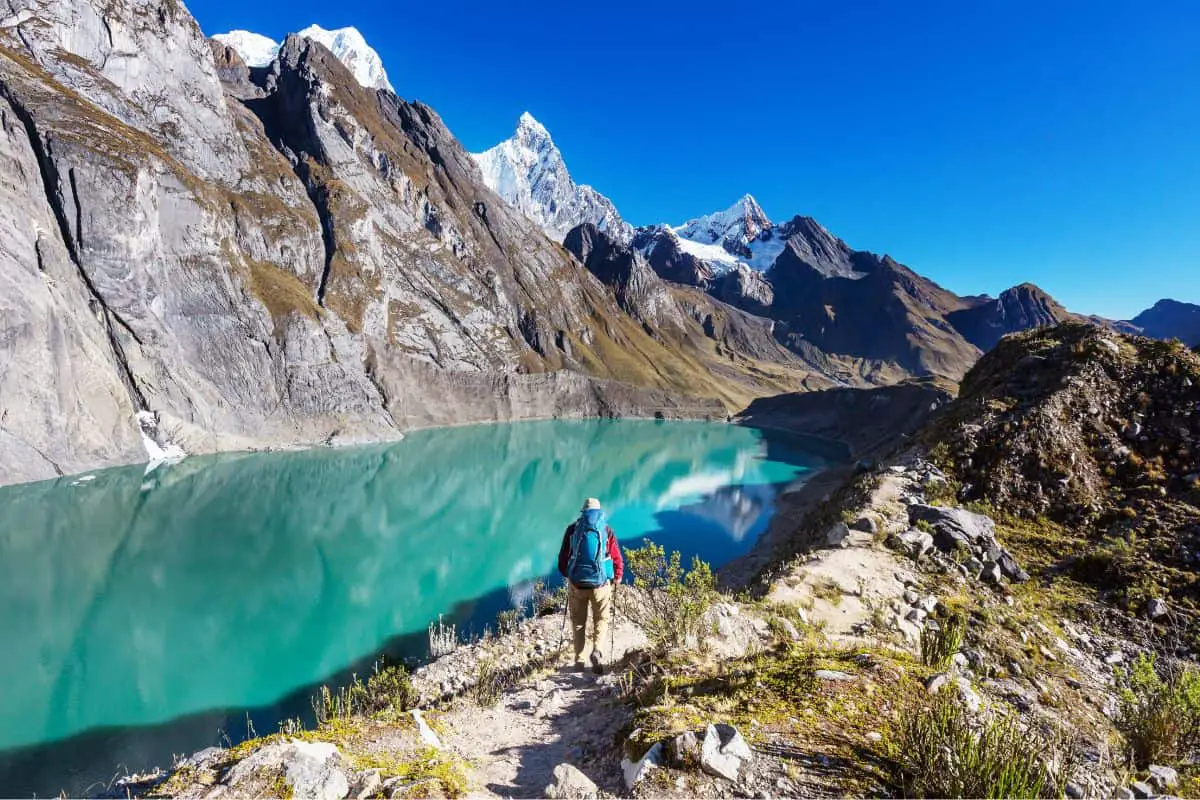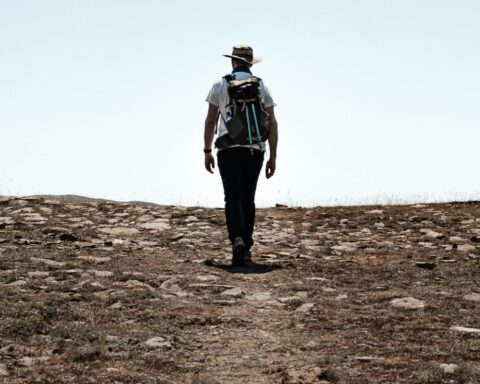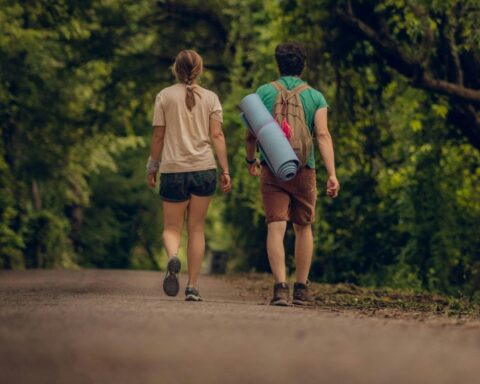Hiking is generally not considered a sport in the traditional sense.
It is more often regarded as a recreational outdoor activity or a form of exercise that involves walking or trekking on trails and in natural environments.
Unlike sports, which often involve competition with defined rules and winners, hiking is typically a non-competitive and leisurely pursuit that allows individuals to enjoy nature, explore new places, and experience the physical and mental benefits of being outdoors.
Understanding Hiking and Sport
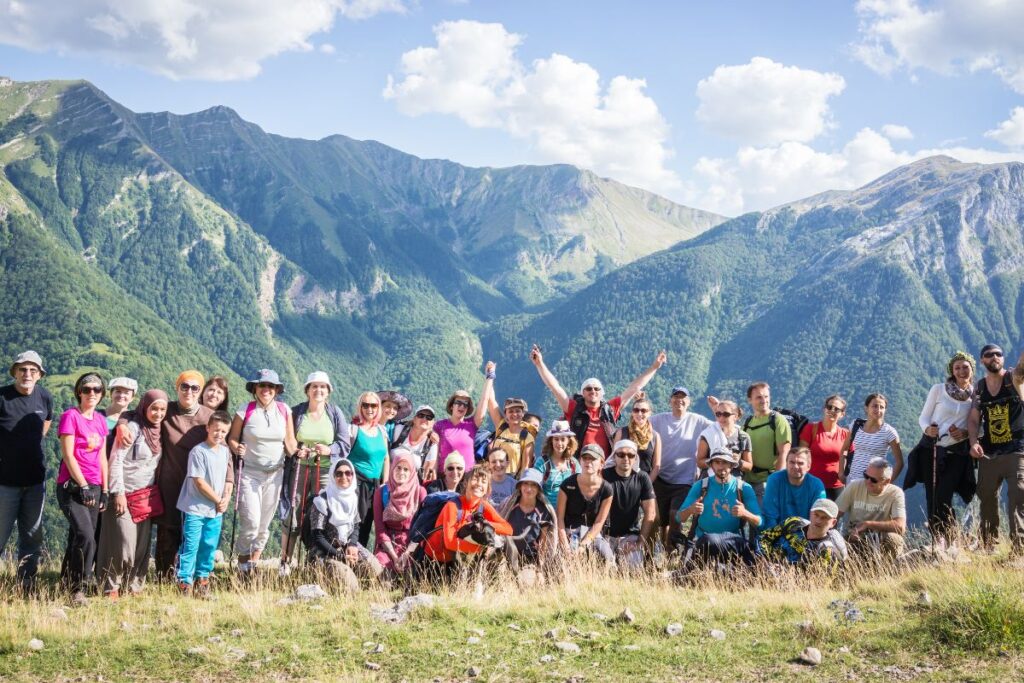
When you think about hiking, you may conjure images of serene trails, the sounds of nature, and the challenge of traversing various terrains.
Hiking is primarily an outdoor activity that blends physical exercise with the enjoyment of nature. It’s a leisure activity chosen by many for its health benefits and the peace it often brings.
In contrast, a sport is commonly defined as an activity involving physical exertion and skill where individuals or teams compete against one another, often for the entertainment of spectators. The essence of sport lies in its competitive nature and structured rules.
Hiking can sometimes include elements of competition, such as in racing events or challenges. However, these instances are not the core of what hiking represents for most enthusiasts.
Rather, hiking is appreciated as a form of recreation or a leisure activity that allows you to exercise without the competitive pressures found in sports.
| Sport | Hiking | |
|---|---|---|
| Focus | Competition & Skill Development | Recreation & Enjoyment of Nature |
| Goal | Winning & Entertaining Spectators | Achieving Personal or Group Objectives |
| Setting | Often in Arenas or Defined Fields | Trails, Mountains, and Natural Landscapes |
To fuse these ideas, think of hiking as a physical activity that you can partake in for exercise, health benefits, and to satisfy your love for the outdoors.
While it might not fit the strict definition of sport, hiking does incorporate physical effort and can be pursued in a goal-oriented manner, much like sports, but typically without the element of competition against others.
Essentials of Hiking
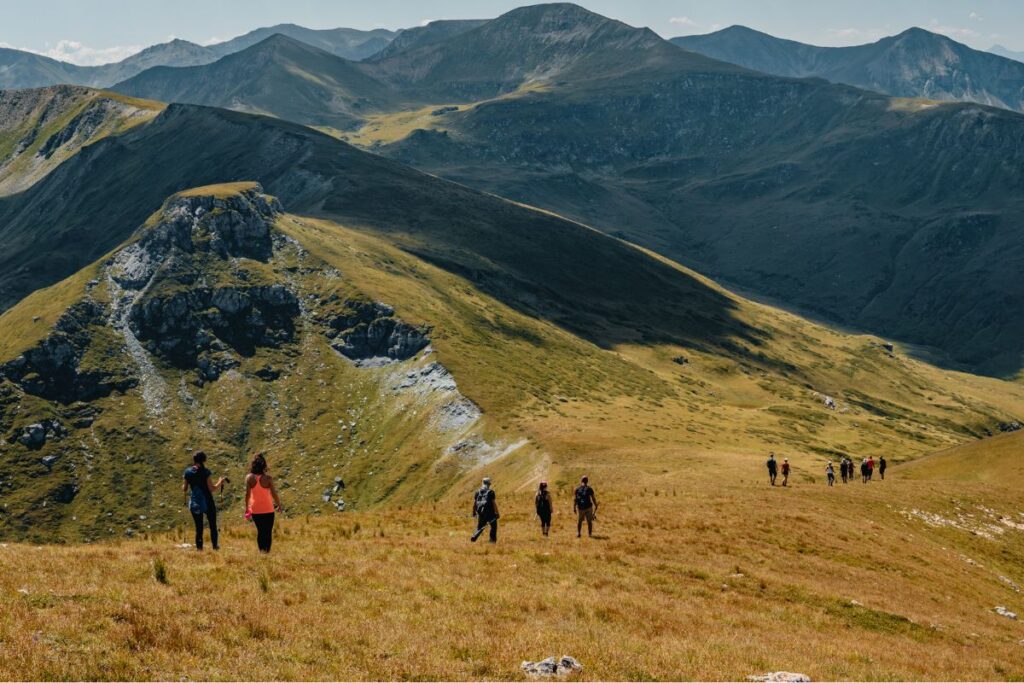
Before you set foot on the trail, it’s vital to be equipped with the right gear and know-how. Proper preparation can make the difference between an enjoyable hike and a challenging ordeal.
Gear and Equipment
- Backpack: Your backpack is the cornerstone of your hiking gear. Select a size appropriate to the length of your hike, ensuring it has adjustable straps for comfort and is made of a durable, water-resistant material.
- Footwear: Choosing the right footwear is critical. Hiking boots or shoes should offer good support, be well-fitting, and be broken in before your hike to prevent blisters.
- Tent: For overnight hikes, a lightweight tent is key. Look for one that’s easy to set up, has excellent weather-resistance, and offers enough space for your party.
- Packing: When packing, balance weight distribution and prioritize items based on necessity. Essential items should be easily accessible.
- Trekking Poles: These assist with balance and reduce effort on the knees, especially during descents. Aluminium or carbon fiber poles are recommended for their strength and light weight.
- Navigation: Always carry a map and compass or GPS. Understanding how to navigate with these tools is crucial for safety.
Read later 🏃 Hiking vs Running: Comparing Benefits and Challenges
Hiking Techniques and Safety
- Effort: Gauge your fitness level and plan your hike accordingly. Begin with shorter trails and progressively tackle more challenging ones.
- Safety: Understand the risks associated with your chosen trail. Always inform someone about your hiking plan and expected return time. Check weather conditions before departing and carry a whistle and headlamp for emergencies.
Remember, your safety depends largely on your preparation and decisions. Stay informed and make judicious choices on the trail.
Health and Fitness Benefits

When you embrace hiking as a regular activity, you’re not just stepping into nature; you’re stepping up your health and fitness game.
Hiking is a low-impact, cardio-rich exercise that primarily targets your cardiovascular health, improving the efficiency of your heart and lungs while also helping to control weight.
Engaging in hiking, your physical exertion leads to stronger muscles and bones, thanks to the weight-bearing nature of the activity.
This not only enhances your physical fitness but also works towards preventing conditions like osteoporosis.
Alongside these physical health benefits, hiking is known for its positive impact on mental health, reducing symptoms of stress, anxiety, and depression.
Here’s a quick breakdown of hiking’s impact on health and fitness:
- Cardiovascular Health: Enhances heart health and lung capacity.
- Muscle Strength: Builds strength in the lower body and core.
- Weight Management: Aids in burning calories and controlling weight.
- Bone Density: Weight-bearing exercise strengthens bones.
- Balance and Stability: Navigating uneven terrain improves balance.
- Mental Wellbeing: Elevates mood and reduces stress levels.
By integrating hiking into your routine, you’re committing to a multifaceted fitness approach that can lead to long-term health advancements.
Regular physical exertion on the trails not only amps up your fitness level but also contributes to an overall sense of well-being. Whether you’re scaling steep inclines or strolling through serene paths, your body and mind reap the rewards.
Types of Hiking Activities
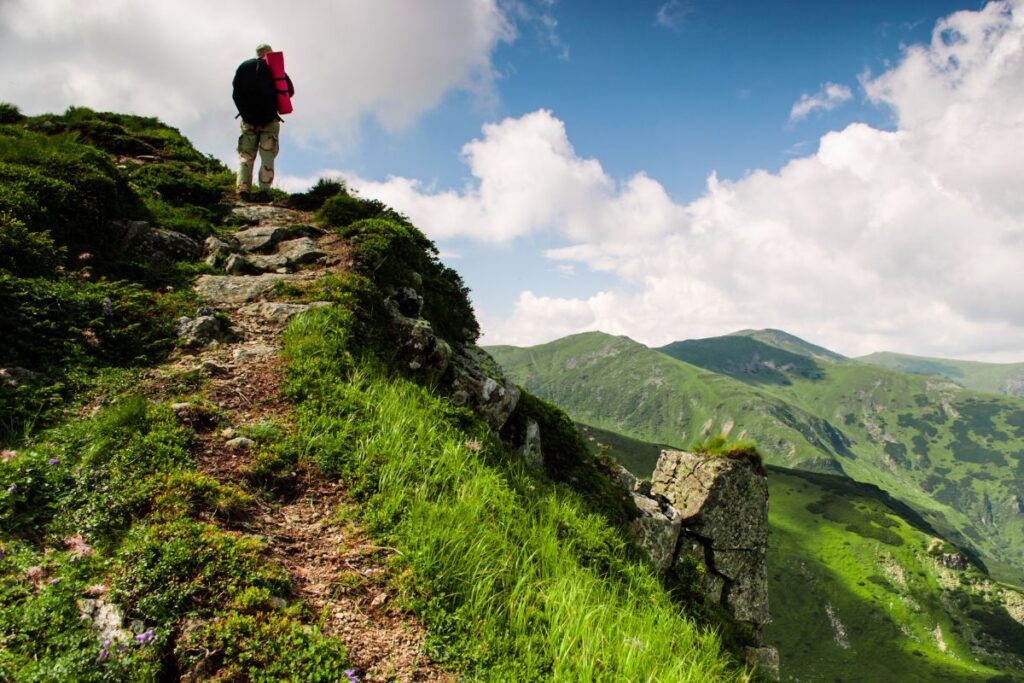
In the realm of outdoor adventures, hiking activities span from the calm and scenic to the rigorously athletic. Understanding the range helps you find your preferred path or challenge.
Trail Hiking and Backpacking
For those of you seeking immersion in nature, trail hiking is the quintessential activity.
You’ll encounter a variety of terrains on hiking trails, from flat and forgiving paths to steep and rocky ascents.
Whether you’re traversing through dense forests, open meadows, or rugged mountains, trail hiking offers a way to experience nature at your own pace.
Backpacking, on the other hand, takes you on multi-day journeys where you carry all your essentials on your back.
Here’s what to expect:
- Adventure: Extended time in backcountry, often on trails or in wilderness areas.
- Mountains and trails: Opportunity to explore diverse landscapes, from serene valleys to towering summits.
- Cross-country: If your route takes you off the beaten path, you’ll navigate varied terrain, enhancing the sense of adventure.
Competitive Hiking and Events
For those of you with a competitive streak, hiking can indeed take a sporting angle.
- Competitive hiking and events involve activities that introduce time-based challenges or races often organized on established hiking trails or through mountains.
- Trail running is a high-intensity variant where speed and endurance are key as you navigate over natural terrain, including uphill sections and potentially mountaineering scenarios.
Notable elements of competitive hiking include:
- Hiking events: Organized challenges which might combine hiking with activities like snowshoeing or cross-country skiing.
- Uphill races: Specific events that test your ability to scale steep inclines rapidly.
Exploring these types of hiking can rank anywhere from leisurely pastimes to athletic endeavors depending on your approach and the challenges you opt for.
Hiking in Culture and Community
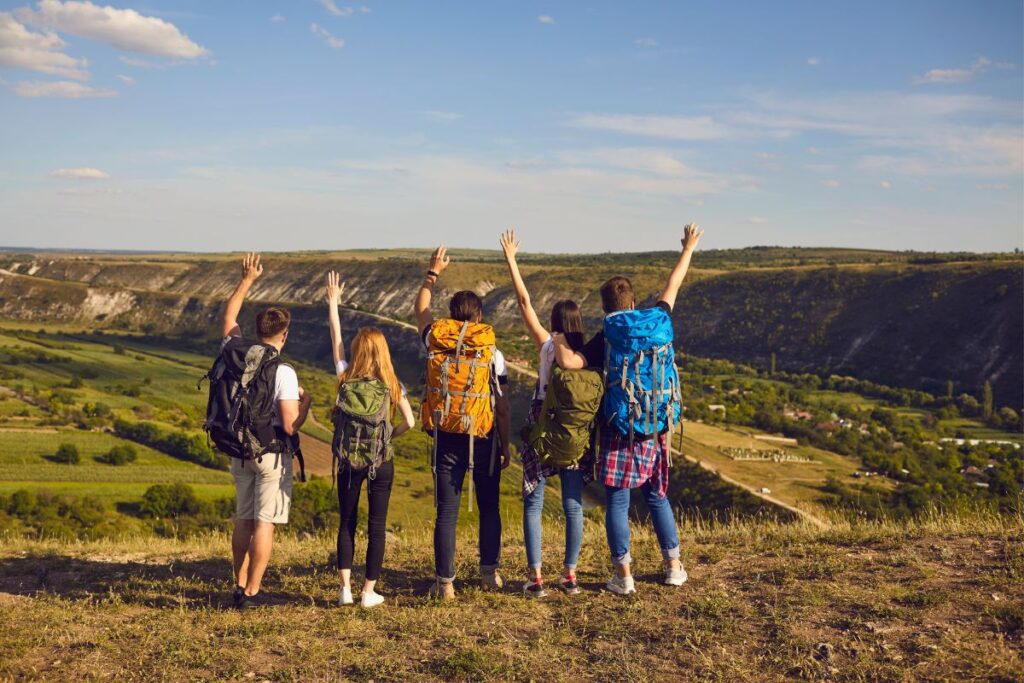
In modern society, hiking embodies a culture that values exploration, camaraderie, and a return to nature.
As you engage in hiking, you find it’s more than a simple recreational activity; it’s a community-driven hobby that thrives on shared experiences and the joy of the outdoors.
Hiking culture often celebrates minimalism and self-sufficiency, with respect for the environment at its core.
Community Building:
- Shared Interests: Find friends with a common love for outdoor pursuits.
- Support Networks: Lean on fellow hikers for knowledge and encouragement.
Cultural Significance:
- Historical Roots: Historically, it has been tied to religious pilgrimages and cultural treks.
- Individualism vs. Collectivism: While emphasizing personal growth, hiking also fosters a sense of belonging.
Activities Within Hiking:
- Trekking: Engage in longer, more challenging journeys often spanning multiple days.
- Camping: Combine hiking with overnight stays in the wilderness.
Do note that hiking is not recognized as a competitive sport by the International Olympic Committee. The focus remains on personal achievement and connecting with nature rather than competition.
Role in Society:
- Escapism: Hiking offers a respite from day-to-day life.
- Health Benefits: It promotes physical fitness and mental well-being.
Through hiking, you explore not just the landscapes but also the depths of human connection, set against a backdrop of natural splendor.
Whether you are a seasoned trekker or a casual weekend hiker, the culture around this activity is welcoming and rich with diversity.
